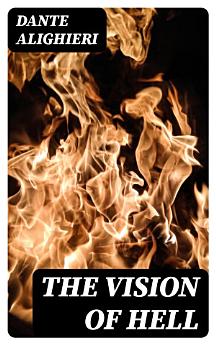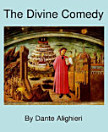The vision of hell: By Dante Alighieri. / Translated by Rev. Henry Francis Cary, M.A. / and illustrated with the seventy-five designs of Gustave Doré
Sep 2022 · DigiCat
Ebook
133
Pages
family_home
Eligible
info
reportRatings and reviews aren’t verified Learn More
About this ebook
Dante Alighieri's "The Vision of Hell"—more commonly known as the first part of "The Divine Comedy"—is an unparalleled exploration of the moral landscape of the human soul. Through rich, allegorical verses and vivid imagery, Dante guides readers through the nine circles of Hell, each representing different sins and their consequential everlasting punishments. Written in the early 14th century during a pivotal time of philosophical and theological inquiry, this seminal work employs the terza rima rhyme scheme, a hallmark of Dante's innovative literary style, weaving together personal experience with profound moral and spiritual contemplation. Dante's background as a poet, politician, and philosopher in Florence profoundly influenced his writing. His exile from Florence ignited a deep reflection on justice, redemption, and the human condition, themes that permeate "The Vision of Hell." The text serves as a cautionary tale infused with Dante's unique merging of classical mythology and Christian theology, ultimately seeking to illuminate the path to personal and societal morality amidst the tumult of his era. Readers are wholeheartedly encouraged to delve into "The Vision of Hell" not only as a foundational work of Italian literature but as an enduring examination of ethical dilemmas still relevant today. Dante's masterful narrative invites reflection on the nature of sin, justice, and redemption, making it essential reading for those seeking a deeper understanding of the human experience.
About the author
Dante Alighieri (1265–1321) stands as one of the most important poets of the late Middle Ages and a central figure in Italian literature. His magnum opus, 'The Divine Comedy,' is widely regarded as one of the greatest pieces of world literature, in which 'The Inferno,' often translated as 'The Vision of Hell,' is the initial part. An epic poem written in the vernacular of the time—Tuscan dialect, which would eventually become modern Italian—Dante's work has significantly shaped the literary and cultural landscape of Italy and beyond. 'The Vision of Hell' vividly portrays the medieval concept of hell, divided into nine circles of suffering, where sinners are punished in accordance with their sins. Dante's poetry is characterized by his use of terza rima, a rhyming verse stanza form that he utilized with superb skill. 'The Divine Comedy' blends a rich array of classical and contemporary references, making it a unique synthesis of the author's encyclopedic knowledge of philosophy, theology, and history. Dante's influence is pervasive, impacting subsequent literature, theology, and the arts, and his work continues to be studied and cherished for its linguistic innovation, imaginative power, and its exploration of the human condition.
Rate this ebook
Tell us what you think.
Reading information
Smartphones and tablets
Install the Google Play Books app for Android and iPad/iPhone. It syncs automatically with your account and allows you to read online or offline wherever you are.
Laptops and computers
You can listen to audiobooks purchased on Google Play using your computer's web browser.
eReaders and other devices
To read on e-ink devices like Kobo eReaders, you'll need to download a file and transfer it to your device. Follow the detailed Help Center instructions to transfer the files to supported eReaders.








